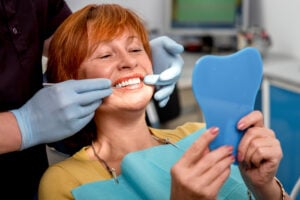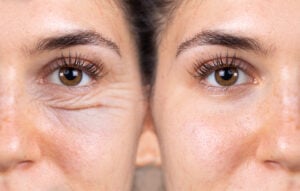These days more and more people are choosing to have dental treatment abroad. And why not? With the cost of treatment often up to 70 per cent less than at home, it makes sense – especially when you can combine your trip with a holiday in a lovely location at the end of the treatment.
Whether it’s Europeans heading to Eastern Europe or US citizens crossing the border into Mexico, it appears dental tourism is a big deal.
The global dental implants market is predicted to be worth USD 9.0 billion by 2027, according to a recent report by ResearchAndMarkets.com. In 2019, the biggest market for implants was in Europe, but it is being rapidly overtaken by the Asia Pacific region where both disposable income and awareness of oral healthcare are growing.
The dental tourism market in general is predicted to grow by 12% annually and reach $5.83 billion by 2025, according to a report by Adroit Market Research.
This strong growth is driven by the increasing demand for cosmetic dentistry from the 25-45 age group.
In this article we’ll look at the advantages of going abroad for dental treatment, as well as any risks.
Advantages of dental treatment abroad
Affordable treatment
There are huge savings to be made in the cost of dental treatment abroad – especially for those in wealthier western countries such as the USA, the UK, Australia and New Zealand. A crown would cost around $3,000 in America, compared to only $495 in Mexico. The same crown would cost an average of £375 in the UK, but a mere £65 in Ukraine.
Less time to wait
You don’t have to wait so long for dental treatment abroad compared to many countries where dentistry is part-funded on the public health service, such as in the UK or France. Instead of waiting three months at home, you can often get the treatment in under three weeks in another country.
Quality of treatment is excellent
Many dentists practising abroad are educated and trained to international standards. This means they are just as competent as dentists in home nations. Also, the materials used in dental treatment abroad can even be of a higher quality compared to countries where subsidised dental care is under funding pressures.
Care is of a high standard
Because dental tourism is a profitable and expanding market there is plenty of competition. In order to stand out a clinic has to offer something special – and often that is in the way it treats patients, making them feel completely at ease. Some dental tourism clinics also bundle in airport transfers and sometimes accommodation to create a seamless experience for patients coming from overseas.
Plenty of choice
You won’t be short of choice in dental providers, whatever country you choose to combine your holiday and dental treatment. Dental tourism is a rapidly growing industry, and has been for several years.
Risks of going abroad for dental treatment
In view of the growth of dental tourism, the UK’s General Dental Council has provided a guide for those considering going overseas for treatment. In it they caution: “We recommend you do as much research as you can and find out the facts before you go to ensure your treatment abroad meets your expectations.”
No warranty for the dental work
If the dental work goes wrong once you get back home, or even while you are still in the country, it can be difficult to get compensation or have the problem fixed by that dentist. This is because there are often no warranties for work abroad. And, even if there are, pursuing a case through the courts in another country can be complicated and costly.
Regular follow-ups can prove expensive
If you have to pay more than one visit, then the cost of flights and hotel stays starts to add up. You may wonder if it may have been less expensive – and exhausting – to stay at home for treatment after all. It could be, for example, that a patient is unknowingly suffering from gum disease. This would prevent implants being installed since the gums would need to be treated first, resulting in many visits.
Language barrier
It can be difficult to communicate when you don’t know the language. This is particularly stressful if you are receiving treatment, and you can’t understand what the dentist is trying to explain to you. Therefore, it’s always worth checking if medical interpretation services are available at the clinic.
Treatment plan might change
If you don’t meet your dentist until you actually go abroad, you may not know your treatment plan in advance. You may then feel pressured to accept the proposed work, without having time to think about it or seek a second opinion. If complex dental work such as implants are required, it’s a good idea to obtain full mouth x-rays from your home country and share these with the clinic abroad, so an informative pre-visit consultation can take place.
All in all, there are clearly pros and cons to dental tourism. However, if you research the clinic carefully, and understand the regulations of the host country, then having dental treatment abroad can prove to be an enjoyable and worthwhile experience.
Are you looking for the best dentists abroad? We will soon be launching agency services to connect you with the best international dental clinics. Sign up to stay informed.















